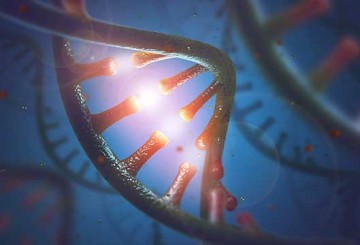Tag: Research
-

Northwestern Receives $12 Million Grant to Advance Epilepsy Research
Northwestern has been awarded a $12 million, five-year grant from the NIH for a research center dedicated to advancing the genetic understanding of epilepsy.
-

Driskill Day Highlights Scientists in Training
Students, faculty and alumni gathered for the seventh annual Driskill Day, celebrating the Driskill Graduate Program in Life Sciences by welcoming 28 new students and showcasing the program’s strengths in scholarship and scientific investigation.
-

Elevated Carbon Dioxide Linked to Restricted Airway
A new study finds that excessive carbon dioxide in a patient’s bloodstream can lead to a restricted airway, calling into question current clinical practices for patients with chronic obstructive pulmonary disease.
-

Cell Cycle Protein Has Surprising Secondary Function
A protein facilitating DNA replication during cell cycle also binds microtubules, findings that could inform more effective cancer treatments, according to a recent study published in the Journal of Cell Biology.
-

Reducing HIV Risk in Young Transgender Women
A behavioral program significantly reduced the sexual risk for HIV infection among young transgender women, according to a Northwestern Medicine clinical trial.
-

Medical Schools Lag Behind in Tuition Aid for Veterans
Veterans Affairs-supported tuition aid for military veterans enrolling in medical school covers a smaller proportion of tuition compared to aid for other graduate programs, according to a recently published Northwestern Medicine study.
-

Sugar Pills Relieve Pain for Chronic Pain Patients
Scientists have shown they can predict which chronic pain patients will respond to a placebo pill based on brain anatomy and psychological characteristics.
-

Movement and Rehabilitation Science Training Day Highlights Collaboration
Students, postdoctoral fellows and faculty from Northwestern and beyond gathered at the eighth annual Movement and Rehabilitation Sciences Training Day to share scientific results and methods and to network with colleagues.
-

How Non-Coding RNA Regulates Genes in the Developing Brain
Northwestern Medicine scientists have identified how a type of RNA regulates genes over an unprecedented distance, during a critical process of embryonic brain development that affects adult seizure susceptibility.
-

High Blood Sugar In Pregnancy Linked To Child’s Obesity, Diabetes In Mom
A pregnant woman’s higher blood sugar level is linked to a significantly greater long-term risk of obesity in her child – even more than a decade later.






